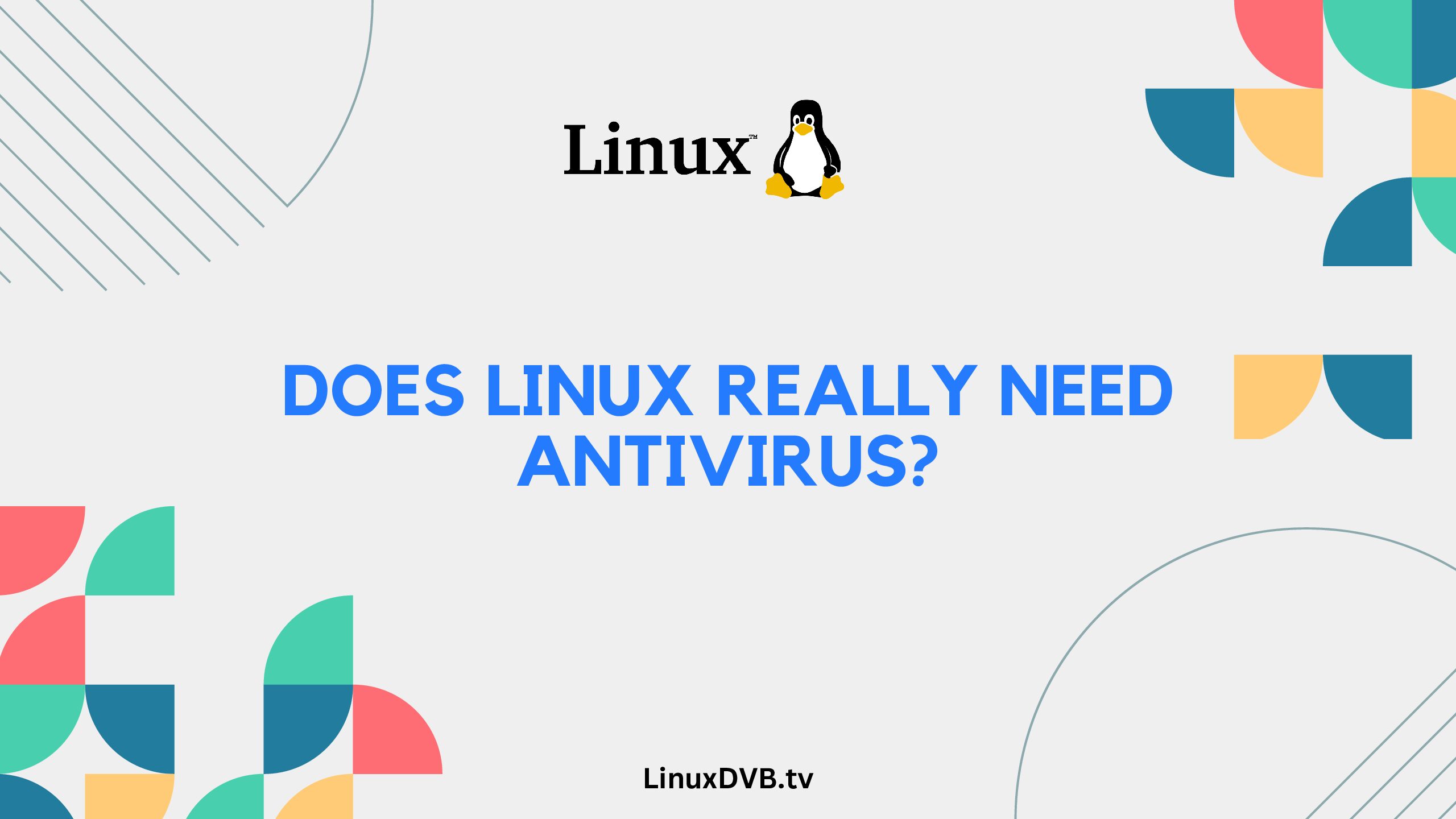Introduction
Linux, an open-source operating system, is renowned for its stability, security, and resistance to malware attacks. However, the rise in cyber threats and the growing complexity of malware raise the question of whether Linux is immune to security risks. In this article, we aim to dissect this question and provide valuable insights into whether antivirus software is a necessity for Linux users.
Table of Contents
Does Linux Really Need Antivirus?
Linux enthusiasts have long claimed that the inherent architecture of the operating system makes it less vulnerable to viruses and malware. While this is true to an extent, it’s essential to recognize that no system is entirely immune. Linux may have fewer threats targeting it compared to other operating systems, but it’s not invincible.
The truth is, as Linux gains popularity in both personal and business environments, it becomes a more enticing target for cybercriminals. Linux-powered servers run critical infrastructure worldwide, making them valuable targets. Therefore, the notion of Linux being virus-proof is a myth. While its security mechanisms offer a strong defense, they can’t guarantee absolute protection.
Understanding Linux Security Layers
One of the primary reasons Linux has a reputation for security is its multifaceted security model. Let’s explore these layers:
User Privileges and Permissions
Linux follows the principle of least privilege. Users don’t usually operate with administrative rights, limiting the potential damage of malicious software. Additionally, the robust permission system ensures that only authorized users can access sensitive files and directories.
Package Management
Linux distributions employ package managers that provide software from trusted repositories. This centralized approach reduces the risk of downloading malware-infected software from unverified sources.
Isolation through Sandboxing
Many Linux applications run in sandboxes, isolated environments that prevent them from affecting other parts of the system. This containment strategy is an excellent defense against malware.
Mandatory Access Control
Linux incorporates Mandatory Access Control (MAC) systems like SELinux and AppArmor. These tools enforce strict access rules, preventing unauthorized actions even if a system is compromised.
Regular Security Updates
Linux communities actively monitor vulnerabilities and release updates promptly. This ensures that security flaws are patched, bolstering the system’s defenses.
The Role of Antivirus Software
While Linux’s built-in security layers offer robust protection, antivirus software can still be beneficial. Here’s how:
- Protection Against Cross-Platform Threats: Although Linux viruses are relatively rare, they can still exist. Antivirus software can detect and prevent Linux malware as well as threats that target other operating systems.
- Scanning for Windows Malware: Linux servers often interact with Windows systems. While Linux may be immune to Windows malware, it can inadvertently spread infected files to Windows machines. Antivirus software can intercept such files, safeguarding the Windows ecosystem.
- An Added Layer of Security: Antivirus tools provide an extra barrier against emerging threats. Cybercriminals constantly develop new techniques, and antivirus software can detect suspicious behavior even if it’s not a known threat.
- Protection for Shared Files: If you’re using Linux in a networked environment, antivirus software can prevent the distribution of infected files across the network.
FAQs
Is antivirus necessary for personal Linux systems?
While it’s not as critical as for Windows systems, having antivirus software adds an extra layer of protection, especially if you share files or use your Linux device in a networked environment.
Can Linux transmit Windows malware?
Linux itself isn’t affected by Windows malware, but it can unknowingly transmit infected files to Windows machines. Antivirus software prevents this scenario.
Do antivirus programs slow down Linux systems?
Modern antivirus software is optimized not to cause significant performance degradation. Linux systems with ample resources should handle antivirus software without major slowdowns.
Are there free antivirus solutions for Linux?
Yes, several reputable antivirus software providers offer free versions for Linux. Examples include ClamAV and Sophos.
What’s the biggest security risk for Linux?
Neglecting updates and patches poses a significant security risk. Regularly updating your system and applications is crucial.
Can Linux servers be targeted by malware?
Absolutely. Linux servers are valuable targets due to their prevalence in critical infrastructure. Antivirus software is a valuable defense against server-level attacks.
Do Linux distros need antivirus?
Yes, having antivirus is beneficial for Linux distributions.
Does Linux need an antivirus?
Yes, it’s recommended for better security.Does Linux need antivirus?
Yes, it’s advisable for added protection.Why does Linux not need antivirus?
Linux’s architecture makes it less prone to typical malware.Does Linux really need antivirus?
While less targeted, antivirus can enhance Linux security.Why is there no antivirus for Ubuntu?
Ubuntu has antivirus options, but fewer threats target Linux.Conclusion
In the realm of cybersecurity, absolutes are rare. While Linux boasts impressive security features, it’s not invulnerable. The question of whether Linux needs antivirus software is best answered by considering your usage. If you’re a casual user who practices safe browsing habits, the built-in security might be sufficient. However, for those who work in environments that involve cross-platform interactions or networking, having antivirus software is a prudent choice. Remember, cybersecurity is an ongoing battle, and a layered defense is often the most effective strategy.

